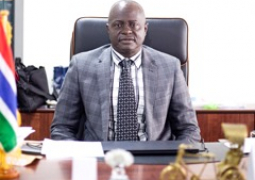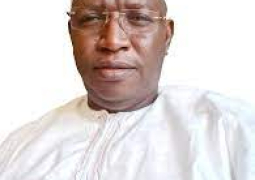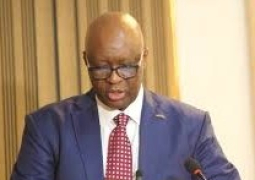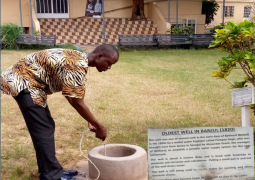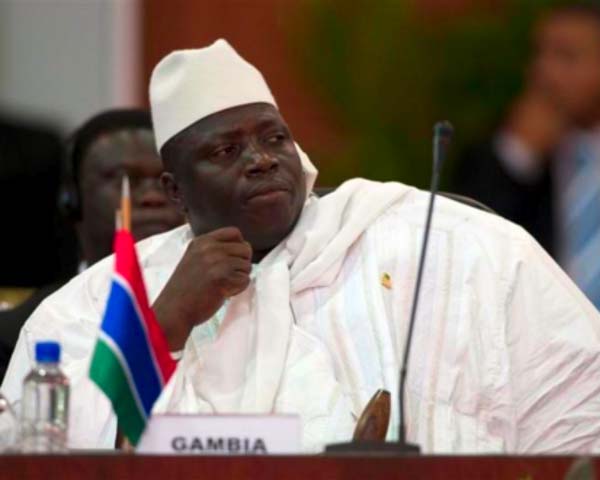
That was a “safe space” for them – a concept pursued by a victim-led civil society organisation because of the Truth Reconciliation and Reparations Commission (TRRC). Within these hearings, they discovered challenges in areas of Sexual and Gender Based Violence (SGBV). Witnesses and victims shy away from publicly appearing to explain their experiences. The TRRC responded by running listening circles that had earned the trust of these women to participate in these spaces.
“Sexual violence and rape were used against women opponents of the Jammeh regime. In fact, they came in many forms,” said Mrs Fatou Jagne Senghore, human rights expert and founder, Centre for Women’s Rights and Leadership (CWRL).
“Young women in different roles, including those recruited directly as protocols; young girls from various school competition schemes, and others from vulnerable backgrounds were subjected to sexual abuses and rape by security forces and other public officials. SGBV and rape have been recurrent in workplaces including at the presidency and in places under the control of the former President. But many women were afraid to speak up and some families were involved in encouraging and pressuring their daughters,” she said in an interview this week in Banjul.
In the post-TRRC listening circles, survivors ranged from common village women like horticultural gardeners, to civil servants who especially served in the security sector. Also present were female members of the police, immigration and the prisons. A lot more are still unwilling to come forward to share their stories: not even the TRRC could assure them of the safety, privacy and secrecy. This has become their fate; suffer in silence, but never to speak about what they endured under the dictatorship.
“In Gambian society, SGBV, particularly rape, are considered taboo matters that should not be in the public domain. Rather, they remain in the private sphere and resolved in secrecy and out of the court systems. In most cases, women are blamed for exposing themselves and attracting men to commit such acts. Their stories are hardly trusted. Neither are their voices heard. Instead, they are victimised and not adequately supported,” Madam Jagne-Senghore explained.
The ninth session of the public hearings of the TRRC held from 14th to the 31st October, 2019, confirmed that there had been revelations of widespread sexual and gender-based violence.
“Sexual violence was often perpetrated either as the main objective of certain human rights violations or it was used as an instrument of repression, torture and punishment. Across The Gambia, females were disproportionately affected by violations including sexual violence, torture, inhumane and degrading treatment, arbitrary arrest, detention and forced labour,” the Commission found.
Some of incidents examined by the TRRC include:
- the sexual violence and abuse of participants of scholarship pageants and “protocol girls”
- rape and sexualised torture by state security officials of male and female detainees
- violations committed as part of the infamous purge of “witchcraft” and
- sexual violence during “the Presidential Alternative Treatment Programme(PATP)
According to the TRRC Report, these violations were perpetrated mainly by security agents and former government officials.
“The Commission received credible evidence that former President Yahya A.J.J. Jammeh himself, committed some of the most egregious of these violations against women and girls through a ‘sophisticated system’ using state institutions and resources… orchestrated [through] a system of using state institutions and officials to have access to young girls which enabled him to exploit and sexually abuse them,” TRRC Report finds.
Fast forward to 2024, some rape victims of Mr Ousman Sonko (Jammeh’s former Interior Minister and inspector General of Police), having mustered the courage to come forward with their stories to the courts in Switzerland, did not have favourable outcome in the judgment delivered on 15th May 2024. The court had cited a legal technicality to “abandon” the charges of rape for these victims.
Although lawyer to one of the plaintiffs had argued that such a decision follows a pattern of disregarding sexual and gender-based violence as a systematic violence and intentional tool used in oppressive systems against women that also affects the broader society.
“It is not an individual crime, but this is how the court qualifies it... that [it] is not connected to systematic violence during the Jammeh regime,” Annina Mullis said, expressing her disappointment with the Swiss justice system.
Beyond the cases linked to the former President, SGBV and rape by security forces were reported in detention centres against dissidents under Jammeh’s rule. This is why, Fatou-Jagne Senghore believed that the cases brought before the Swiss court that were not considered ‘crimes against humanity’ form a useful foundation for the future.
“They have opened possibilities for survivors to speak up and start the litigation phase. If more women come forward, it could bring substantial evidence for prosecutions,” Fatou maintained.
The court had stated that her case was an isolated one, instead of “a pattern of attack against a civilian population. The TRRC heard testimonies of about two dozen victims of SGBV.
For example, one victim (name withheld) testified to the TRRC that:
“He told me, ‘If you don’t talk, I will ask all these men here to rape you’. That was the time I fell down, again, because I could not stand, due to intense pain and injuries. When I regained consciousness, they started beating me...”
Among the incidents examined by the Commission include
(i) the sexual violence and abuse of participants of scholarship pageants and "protocol girls"
(ii) rape and sexualised torture by state security officials of male and female detainees;
(iii) violations committed as part of the of the witch hunt exercises and
(iv) sexual violence during "the Presidential Alternative Treatment Program" (PATP).
These violations were perpetrated mainly by security agents and former government officials. The Commission said it received credible evidence that Yahya Jammeh himself committed some of the most egregious violations against women and girls through a "sophisticated system" using state institutions and resources.
Page 32 of the TRRC Report further states that sexual violence was used to repress, punish, humiliate and ill-treat men and women alike who were opposed to, or were perceived to being opposed to former President Yahya A.J.J. Jammeh or his Alliance for Patriotic Reorientation and Construction (APRC) party.
“They were routinely arrested and detained by state security agents and subjected to sexual violence mainly during interrogation,” it stated.
Volume 15 of the Commission report (Institutional Hearing) also highlighted the circumstances of the SGBV:
“The Commission heard the testimonies and received statements of women…who provided detailed accounts of the sexual violence that were perpetrated on them by the security officials and about the impact of these violations,” it stated.
The findings revealed that men, women and girls were victims of SGBV. It also found that victims ranged from all age groups, including children, older women and men.
It spoke of an “organisational policy at the NIA” to strip male or female detainees naked, especially in cases where detainees were arrested for their perceived opposition to Yahya Jammeh.
“It encourages the culture of impunity and the normalisation of such practices. Very few institutions have policies against SBGV and sexual harassments that could set the standards for the rest of society,” said Mrs Jange-Senghore.
She described these as a phenomenon that discourages many women from speaking up.


